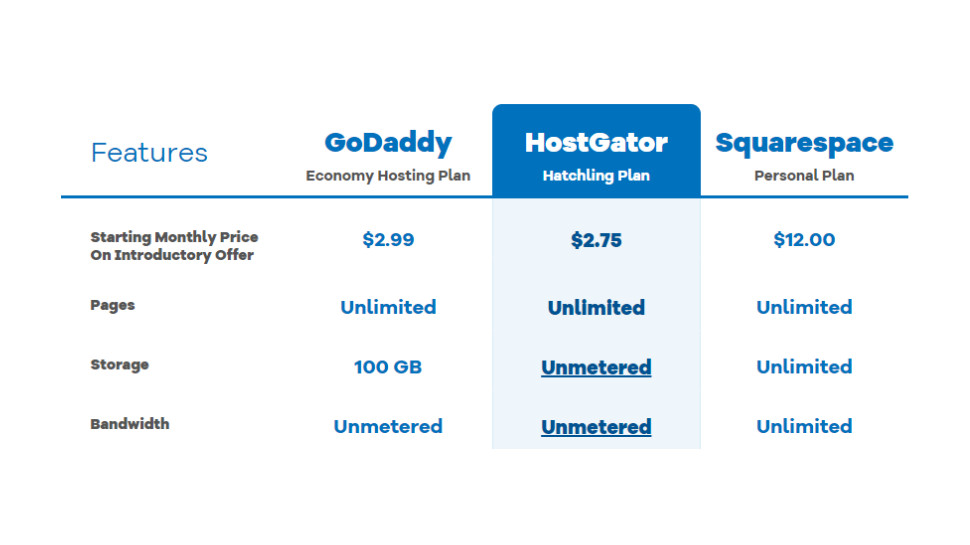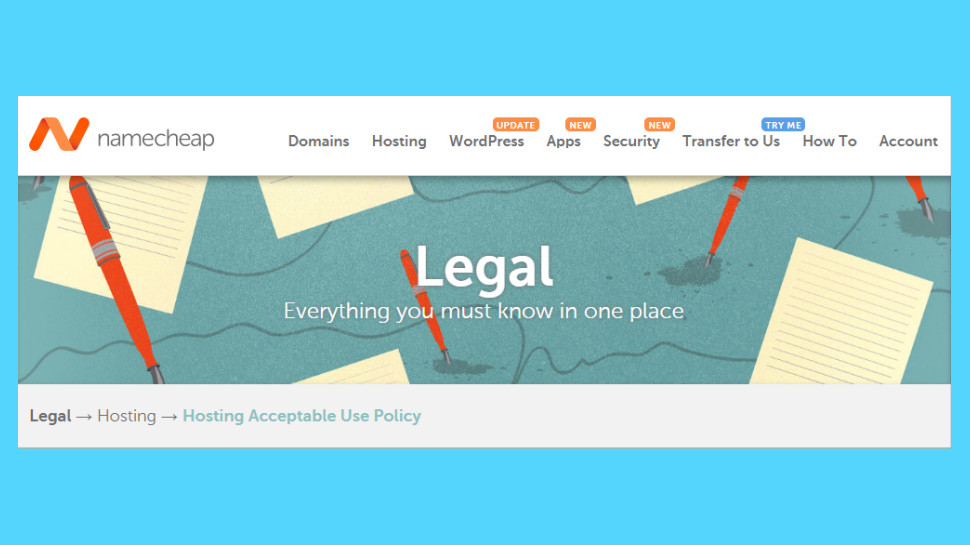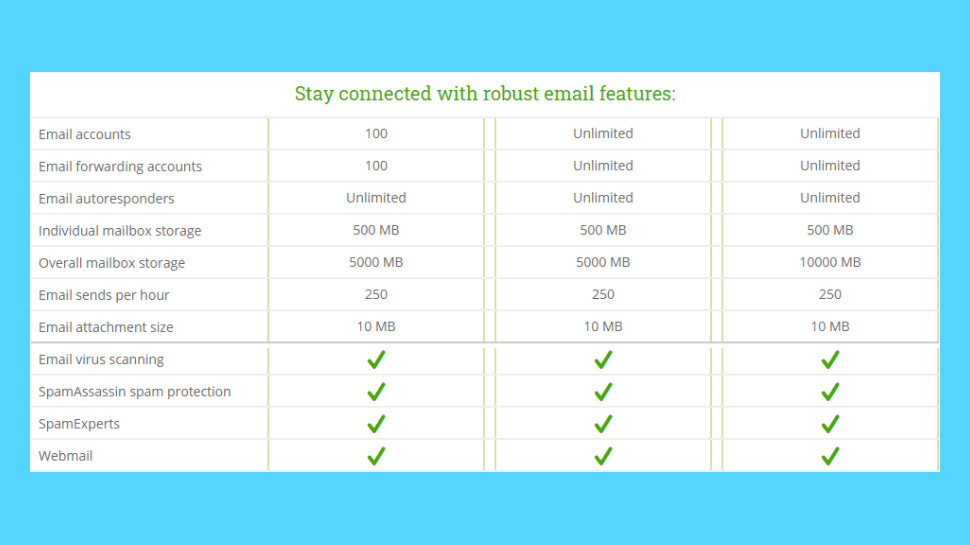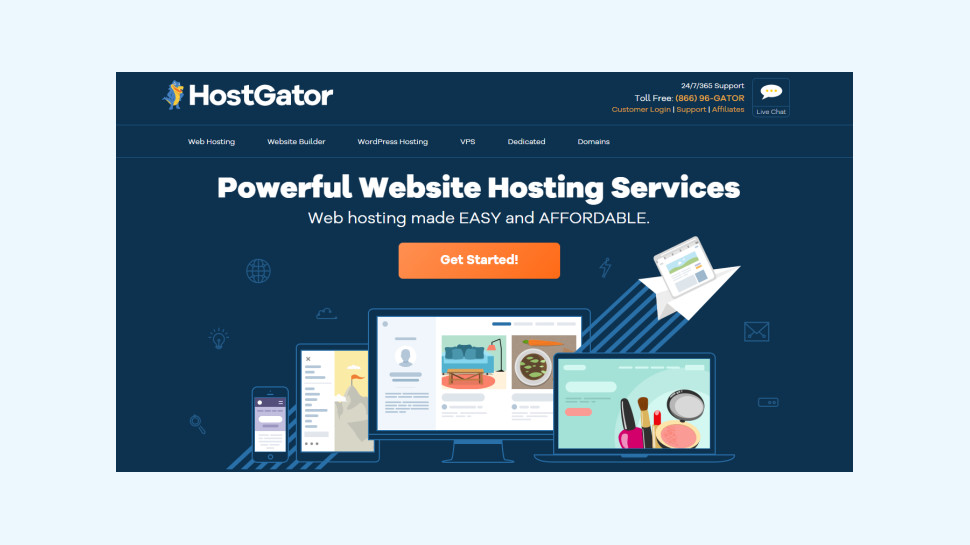The hidden limits of 'unlimited' web hosting
'Unlimited' doesn't always mean what you think. Here's what you need to know

Looking to build a website? Hundreds of web hosting providers are ready to battle for your business, and most are happy to promise you 'unlimited' resources. You'll get unlimited disk space, maybe. You can host unlimited websites. And thanks to the unlimited bandwidth allowance, each of your unlimited websites should be able to handle an unlimited number of visitors. Hooray!
If you're looking for a shared hosting package, the chances are you don't need 'unlimited' anything. A Gigabyte of web space is enough to build a huge site, for instance, and many personal or small business websites will get a few thousand visitors a month, at the very, very most.
Still, as almost no-one knows how many resources their site will require, the 'unlimited' word can seem very, very tempting. Why opt for a plan with 5GB of storage, for instance, when you can get 'unlimited' hosting for a similar price? You'll be less likely to run into annoying limits, and have room for your site to grow, right?
Unfortunately, the reality is almost never that simple. Web hosting services use words like 'unlimited' based on their marketing needs, not dictionary definitions. They often have huge restrictions in other areas, which you may not notice until it's too late. And that's before we get on to all the limits hidden away in the small print.
If you find a web hosting provider promising 'unlimited everything', then, don't immediately head for the 'Buy' button; dig a little deeper, first. Keep reading and we'll explain what you need to know.

'Unlimited' or 'unmetered'?
Understanding a hosting package starts by paying close attention to the language used. Many hosts use words which you might assume mean 'unlimited', when they're really very different.
'Unmetered' is a common example. If a host claims to offer 'unmetered' bandwidth, that means it's not being measured and you can use more or less as much as you like, right? Uh, no (sorry).
Unmetered only means you're not being charged based on the amount of bandwidth used (you're not charged more for using 2GB a month as opposed to 1GB). It doesn't mean there's no bandwidth limit, and in fact almost every host who offers 'unmetered bandwidth' has a small print clause saying there will be problems if you use too much. They just don't tell you what 'too much' is.
'Scalable' is another term used by some hosts. For example, iPage offers 'scalable' bandwidth. Techopedia defines scalability as “the ability of a process, network, software or organization to grow and manage increased demand”, which sounds great, and exactly what you would expect from a web host.
Read the small print, though, and you might get a different impression. iPage explains that its shared hosting is enough to support more than 99.5% of its customers with no issues at all, but if a customer's traffic outgrows the service, it will 'work with the customer to identify scalable solutions, such as our Virtual Private Servers.'
So, in this case, 'scalable' actually means 'use more traffic than you should – a secret limit, which we're not going to disclose – and we'll tell you to upgrade to a more expensive package.' Doesn't seem quite so appealing now, does it?
The message is clear. No matter how many web host sites you've skimmed, or how many comparison tables you've browsed, it's vital to pay close attention to the language used, and to think about what it means. If you're not completely confident you know, then scroll down the page, look for definitions or qualifiers, maybe inspect the Terms and Conditions page – you'll often find useful clues there.
Fair use policies
Whatever variant of 'unlimited' or 'unmetered' a host uses to describe its service, this almost certainly means 'subject to our fair and/or acceptable use policy', and that can make a huge difference.
For example, HostGator says that: “Shared hosting space may only be used for web files, active email and content of User Websites. Shared hosting space may not be used for storage (whether of media, emails, or other data), including, as offsite storage of electronic files, email or FTP hosts.”
In other words, HTML and CSS files, scripts, images and similar content are fine, but videos, archives, backups and related files really aren't.

Other hosts may be a little more generous. Namecheap allows up to 10GB of video or other media files, another 10GB of archives or disk images, and another 10GB of executable files, for instance.
How much of an issue this might be depends on your site, but it's mostly a problem for hosting offering 'unmetered' disk space. Providers which give you a fixed amount of storage and bandwidth generally don't care what you're doing with it, as long as you're not breaking the law (sharing copyrighted material, say).
Bandwidth and other resources have issues of their own. Even iPage's most basic account supports hosting unlimited domains, for instance, but the company also warns: “In most cases, User Websites will be able to support as much traffic as User can legitimately acquire. However, iPage reserves the right to limit processor time, bandwidth, processes, or memory in cases where it is necessary to prevent negatively impacting other Users.”
That's important, as it makes the point that there are more ways of limiting bandwidth than setting some fixed figure for a transfer total. If a host thinks you're using twice the network bandwidth you should, it might throttle your available resources to halve site speed. That's another issue which doesn't apply to hosts offering fixed amounts of bandwidth; they'll typically serve your content as fast as they can.
There are big implications for hosting multiple websites, too. Yes, you might be able to host 100 websites on a single shared account, but it's entirely possible that they'll get 1% of the resources they actually need. So, the more sites you host, the slower they will be.
Web host small print has plenty of interesting clauses along these lines, so check out the details before you buy. The juicy bits are normally in a 'Fair Use' or 'Acceptable Usage Policy' (sometimes abbreviated to AUP), but browse the general Terms of Service page, too – that often has helpful related details.
Technical limits
Although hosts are generally very vague about what 'unlimited' or 'unmetered' hosting really gives you, checking out some key technical limits can tell you more.
The inode is a good place to start. An inode is an entry in a file system index which stores the details of a file or directory. A web host might say it offers unlimited storage, but it'll almost certainly restrict the total number of inodes you can use, effectively setting a maximum number of files.
The standard figure is around 250,000, so this may not seem like a big issue. But it can vary considerably between providers. GreenGeeks starter plan supports 150,000, for instance, while Bluehost has a 'soft limit' of 50,000 for cPanel accounts (in practice it allows more, but this isn't recommended). Emails take one inode each, too, so 50 IMAP inboxes with 1,000 emails each would use 50,000 inodes all on their own.
Even if you haven't reached your inode limit, there might be consequences to having 'too many.' For example, although many services support up to 250,000 inodes, they might not always include accounts with more than 100,000 in their backups. If that's happening on your site, it's probably best you find out now. Dig into the small print for details.

Emails often have further hidden limits. HostPapa's top Business Pro plan offers 'unlimited email accounts', for instance, but individual accounts get a maximum 1GB storage, and there's a total limit of 10GB to cover all accounts. If you're hoping to create 100 emails, that's only 100MB each – which seems quite limited to us.
Drag-and-drop website builders are a particular problem. They're often bundled with shared hosting packages, but many place strict limits on the number of pages or the size of site they'll support. And unfortunately, many providers 'forget' to tell you this upfront. You'll only realize when you hit the limit, and the host explains that you can get unlimited pages, but only if you pay to upgrade.
Don't believe the 'unlimited' hype
When you're next shopping for web hosting, be skeptical, especially of claims that you'll get 'unlimited' anything.
If a host says any of its resources are unlimited, or anything similar, look for definitions on the page, in the small print, and maybe on the support pages. Searching the web knowledgebase for phrases like 'email limits' can often turn up useful content.
Take the time to find out about any limits that really matter to you. Do you need loads of email accounts, or do you care about inbox size? There are huge differences between providers, so if a host isn't clear, open a live chat session and find out before you buy.

It's not all bad news, and some providers do a reasonable job of handling themselves in this area. HostGator describes its shared hosting plans as offering 'unmetered' rather than 'unlimited' bandwidth and storage, with links to explain what this means. And it doesn't have any major catches elsewhere, so for instance its 'unlimited email addresses' aren't crippled by some tiny fixed inbox limit.
If you're tired of looking for hidden catches, though, consider skipping 'unlimited' plans entirely, and opting for something that gives you a fixed share of resources. You'll know exactly what you're getting, and because it's easy for the host to manage, your site could be faster and more reliable, too.
- Here's a list of the best unlimited web hosting providers right now
Are you a pro? Subscribe to our newsletter
Sign up to the TechRadar Pro newsletter to get all the top news, opinion, features and guidance your business needs to succeed!

Mike is a lead security reviewer at Future, where he stress-tests VPNs, antivirus and more to find out which services are sure to keep you safe, and which are best avoided. Mike began his career as a lead software developer in the engineering world, where his creations were used by big-name companies from Rolls Royce to British Nuclear Fuels and British Aerospace. The early PC viruses caught Mike's attention, and he developed an interest in analyzing malware, and learning the low-level technical details of how Windows and network security work under the hood.